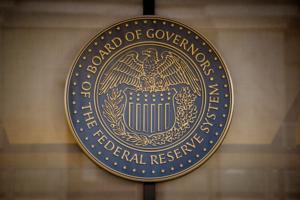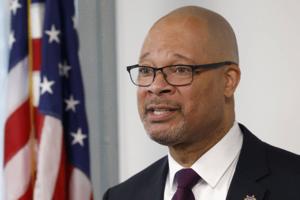Business
/ArcaMax

Telluride remains closed to skiing with patrollers on strike
Telluride Ski Resort remained closed on Monday, as its ski patrollers spent their third day on strike.
The union, known as the Telluride Professional Ski Patrol Association, walked off the job on Saturday — during the busy holiday tourist season — following months of negotiations with the resort ownership over a new contract. The patrollers...Read more

Mortgage rates could drop below 6% in 2026, report says
Mortgage rates could briefly drop below 6 percent in 2026 which could unlock parts of the Las Vegas Valley housing market, according to a new forecast.
Lending Tree’s 2026 Housing and Economic Predictions report expects mortgage rates to drop into the 5 percent range sometime next year, something that has not happened since 2022. Freddie Mac ...Read more

Every Wall Street analyst now predicts a stock rally in 2026
At the big banks and the boutique investment shops, an optimistic consensus has taken hold: the U.S. stock market will rally in 2026 for a fourth straight year, marking the longest winning streak in nearly two decades.
There’s plenty of angst about the risks to the bull run that’s pushed the S&P 500 Index up some 90% since its October 2022 ...Read more

End of Detroit newspapers' JOA heralds new era of competition
A nearly four-decade-long business partnership between The Detroit News and Detroit Free Press ended Sunday, pitting the newspapers against each other financially at a time when few other U.S. cities support two major papers.
Free Press owner USA TODAY Co., formerly known as Gannett Co. Inc., and MediaNews Group — owner of The News — in ...Read more

Stellantis dealers see hints of recovery after profits and sales plunged
Chrysler, Dodge, Jeep and Ram dealers were in open revolt against parent company Stellantis NV for much of last year.
Poor corporate decision-making had tanked sales, the retailers said, while a mishmash of overpriced vehicles piled up on their lots and their profits plummeted to Great Recession-era lows. They sent sharply worded letters and ...Read more

Health insurance costs spike for businesses, workers after pandemic
The cost of employer-sponsored health insurance in California rose at twice the pace of inflation over the past three years, squeezing workers’ paychecks and small businesses alike.
More than 17 million Californians have health insurance through their job, according to a survey released in November by the health information group KFF. The ...Read more
Minnesota Star Tribune closes Minneapolis printing plant as staff reflect on the end of an era
MINNEAPOLIS — The smell of ink, paper, oil and metal clung to the air. Shredded newspaper dangled from a milelong stretch of conveyors that shuttled millions of pages every week.
After decades of work and generations of history, the Minnesota Star Tribune has stopped the presses at its Heritage Center printing plant in Minneapolis. The plant�...Read more

ServiceNow $12 billion deal spree is 'deja vu' of CEO's SAP says
After years of eschewing big mergers, ServiceNow Inc. is on a deal spree. It has spent at least $12 billion this year on acquisitions or strategic investments.
The action has some investors on edge about whether the software company is starting to lean on deals to spur growth, particularly given Chief Executive Officer Bill McDermott’s ...Read more

What is a robo-advisor? How it works, how much it costs, and pros and cons
Robo-advisors automate the investing process for you, making it simple to invest in a diversified portfolio of assets — and they cost much less than a typical financial advisor. It’s little wonder that many investors have turned to them, and robo-advisors now manage hundreds of billions of dollars.
What a robo-advisor does
A robo-advisor ...Read more

Washington's 'constantly squeezed' dairy farms find cheer in eggnog
LYNDEN, Whatcom County — More than 200 pairs of eyes turned to Larry Stap when he stepped into his dairy farm, Twin Brook Creamery, to check on the girls." Under the building's tin roof, a herd of curious Jersey cattle sheltered from the pelting rain on a December afternoon, crowding the edges of their pen to sniff newcomers.
It's eggnog ...Read more

Would you pay $12 for a cup of coffee in San Diego?
Your cortado, cold brew and tulip topped latte all cost a lot more than they did a few years ago.
As $2.25 espresso double shots increased to $4, San Diego coffee and espresso drinkers proved they are willing to pay more.
But how much more?
Talitha Coffee Roasters decided to ask its customers. The San Diego company, which sells wholesale ...Read more

Allison Schrager: 5 reasons to be optimistic about the 2026 economy
One year ago, businesses — especially CEOs — were optimistic about the U.S. economy in 2025, expecting lower taxes and more market-friendly policies from incoming President Donald Trump.
Then came April 2, Liberation Day. The market fell, uncertainty rose, and affordability became a more acute concern. Meanwhile, the labor market continued...Read more

Evan Ramstad: Even in 2025, you could put your money where your mouth is or heart lies
The most opined-about moment of the year on Minnesota’s business scene happened in January, when Target Corp. during Donald Trump’s inauguration week said it was ending some of its programs for improving diversity and inclusion.
I wrote at the time Target’s leaders were reading the zeitgeist, and Trump’s re-election had ended the virtue...Read more

Clive Crook: Investors are flying blind into the 'Golden Age'
Ten years ago I praised a book by Mervyn King, former governor of the Bank of England, on the subject of “radical uncertainty.” Back then, I agreed with King that radical uncertainty – the kind that statistical analysis can’t deal with – was a pressing issue for financial regulators. After the extraordinary year just ending, the ...Read more

Auto review: What I want for Christmas -- Porsche 911T manual
BRASELTON, Ga. — The bad news is the manual transmission is an endangered species these days as emissions regulations and electric vehicles have shrunk the options for American enthusiasts. The good news? Americans looooove to row the gearbox compared to their foreign peers (40% of VW GTI sales have been manual, just 5% in Europe), and so ...Read more

Auto review: 2025 Honda Prologue SUV is a win for EVs
Stacking up in Grasso’s Garage recently has been a slew of EV SUVs. From the EV9 by KIA and the newly redesigned fleet from Audi, EV’s are everywhere. As someone who is certain that vehicles should be hybrid’s and not fully electric, the Honda Prologues enters Grasso’s Garage and is changing my mind quickly.
The 2025 Honda Prologue ...Read more

Nevada files court brief in support of Maryland gaming fight
The Nevada attorney general’s office has filed a “friend of the court” brief on behalf of the state of Maryland in its continuing battle against prediction markets that are taking sports bets the state says are in violation of Nevada gaming laws.
Nevada Attorney General Aaron Ford on Monday formally filed a 49-page amicus brief co-...Read more

Google is at last letting users swap out embarrassing Gmail addresses without losing their data
Google has finally answered users' cries, allowing Gmail users to swap out embarrassing teenage email addresses.
Gmail account holders can now change their existing @gmail.com address while retaining their data and services.
Once changed, old email addresses will remain active, and users will continue to receive emails sent to both the old and...Read more

After leaving ULA, Tory Bruno heads to Blue Origin
Earlier this week United Launch Alliance announced its president and CEO for nearly 12 years, Tory Bruno, was stepping down to pursue different opportunities.
The opportunity was revealed Friday as Bruno was named president for competitor Blue Origin’s newly formed National Security Group, reporting to Blue Origin CEO Dave Limp.
“We share ...Read more

Gold and silver smash records again as rally gathers momentum
Gold, silver and platinum jumped to all-time highs to extend a historic end-of-year rally for precious metals, with support from escalating geopolitical tensions, U.S. dollar weakness and thin market liquidity.
Spot gold rose as much as 1.2% to a peak above $4,530 an ounce on Friday. Spot silver for immediate delivery advanced for a fifth ...Read more
Popular Stories
- ServiceNow $12 billion deal spree is 'deja vu' of CEO's SAP says
- Would you pay $12 for a cup of coffee in San Diego?
- What is a robo-advisor? How it works, how much it costs, and pros and cons
- Washington's 'constantly squeezed' dairy farms find cheer in eggnog
- Allison Schrager: 5 reasons to be optimistic about the 2026 economy









